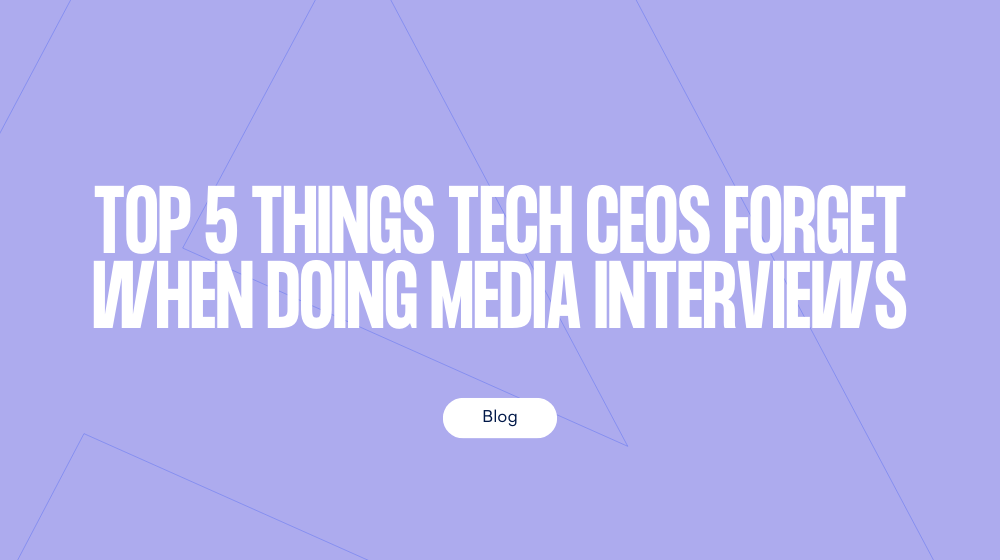Your PR team has set up an interview with a leading journalist, so now what? Being interviewed by the media can be nerve-wracking even for people who do it regularly, but a bit of preparation and some in-the-know insights can do wonders for confidence and the end product. Here are the essentials that CEOs absolutely must remember when approaching media interviews.
Know your message
You should always be clued up on the key messages that your marketing and/or PR team have created, but it’s even more important to familiarise yourself with these in the run up to an interview. A briefing document will be provided, so ensure you read it ahead of time and know those points. Remember, every key message should be backed up with a statistic and a customer example where possible.
Ditch the jargon
You are an expert in your field, otherwise you wouldn’t have got where you are today, but not everybody talks tech. Even if you’re talking to the editor of WIRED, who is likely to be familiar with tech jargon, they will still want things in layman’s terms. Think about how you can make what you’re talking about relevant to everyday lives as opposed to abstract concepts. Examples or metaphors can help to demonstrate your point or bring a complex subject to life, while making sure it resonates with ordinary people.
Use quotable phrases
Now you know your messages, put them into action. Using a menu answer technique works well with print interviews, whereby you set the agenda for the whole interview before going into more detail. Get to the example quickly, that’s the juicy bit. Good journalists will be looking for those short, snappy comments to turn into quotes and soundbites, so make their job easier.
Practice bridging
Journalists can be tricky characters, and many will try to get you to say something you don’t necessarily mean. A good interviewer will feed you phrases and prompt you to agree so they can get their headline, but don’t fall for it. Remember your messages and use bridging techniques to lead into them from a question. Don’t just say yes. Avoid potentially risky areas or discussing sensitive information by bridging with phrases such as ‘what’s more important here is…’ or ‘that’s a very good question, however…’.
Prepare!
Finally, but arguably most importantly, take time to prepare for the interview. If you haven’t read and digested the briefing document or familiarised yourself with your key messages and examples, the interviewer will pick up on it. Some journalists will use this as a way to lead you into saying things you don’t want to say - don’t leave yourself open to that. If feasible, it is recommended to do the majority of your preparation well ahead of an interview to allow time for any questions or additions.
Photo by Sam McGhee on Unsplash




